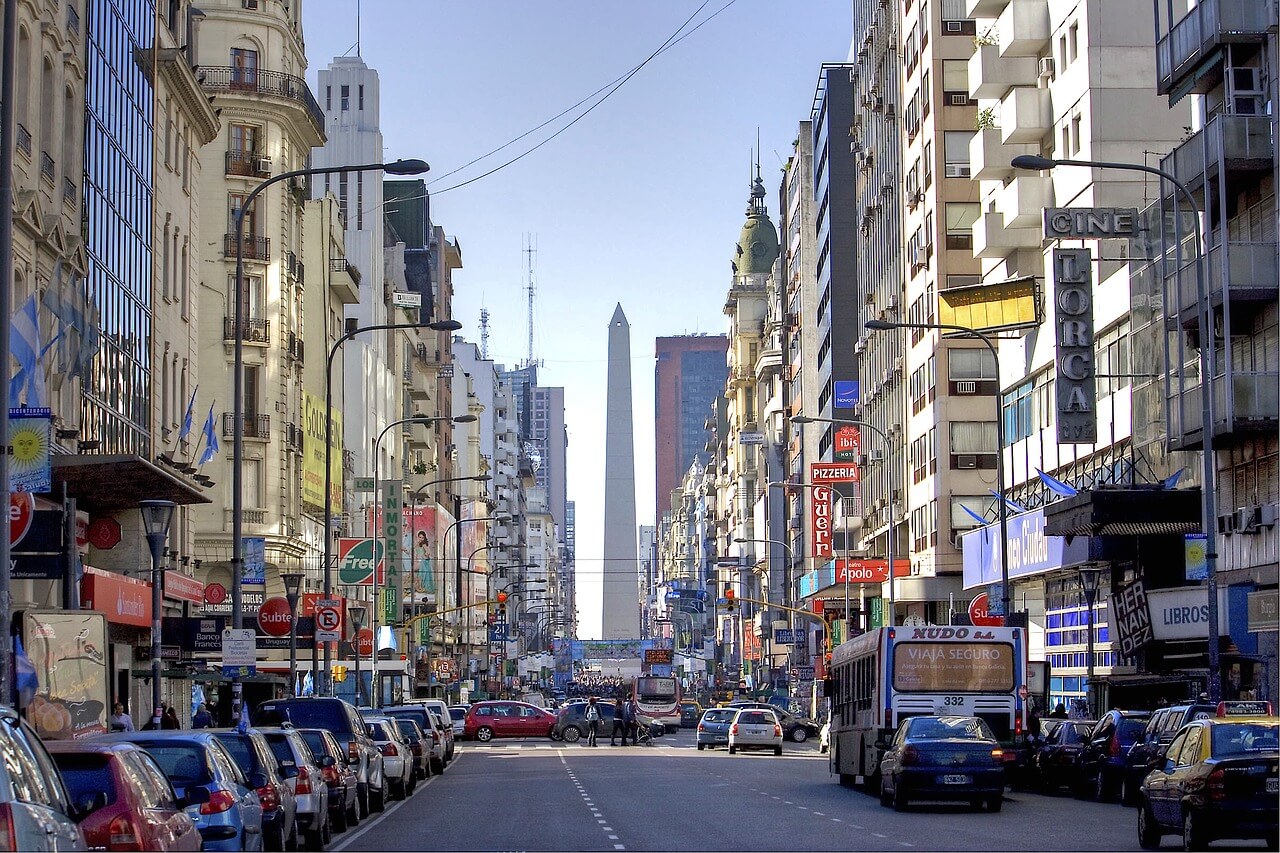

The second-largest economy in South America is currently in the throes of a severe foreign currency crisis.
However, foreign currency controls alone may not be enough to counter rising inflation and poverty. Further interventions in Argentina’s currency market are expected after the central bank raised the interest rate from 58% to 78%.
Meanwhile, much of the population is struggling to put food on the table. Their salaries can’t keep pace with inflation rates and the current situation is forcing parliament to approve a 50% increase in the national budget for public food programmes.
Argentina is facing a worse economic crisis than Greece as protesters in Buenos Aires recently demanded the authorities declare a food crisis. Many people can no longer afford to buy staple products.
A food emergency bill may relieve the burden of daily food shopping, but this measure alone can’t solve the country’s pressing issues. The government has already eliminated taxes on basic foods, with no significant effects on their prices.
As the crisis in Argentina deepens, much of the population has tried to shield their wealth by converting the national peso into USD. The Argentina currency devalues at such an alarming rate that people want to protect their money by saving it in dollars.
However, Argentina currency controls of $10,000 per month have been put in place and are inflaming tensions, particularly among the middle and upper classes. The limit may have some positive effects on the economy by preventing capital flight, but it doesn’t help those anxious about their savings dropping in value – especially when they can’t turn to the US dollar as they have before.
According to some analysts, the country’s economy saw a slight 0.4% expansion in the second quarter of this year. However, these numbers have yet to be confirmed by INDEC, Argentina’s official statistics agency.
The same agency warns that by the end of the year, 10% of the population will face extreme poverty and homelessness. This is due to a further increase in food prices and inflation expected to reach 80%.
Argentina seems to be following the pattern of the country’s previous foreign currency crisis. Back in 2001, currency control policies managed to slow down inflation, but they also collapsed the economy. Now, history seems to be repeating itself, as the South American nation is further stressed by a series of unexpected events.
The first shockwave came after the primary elections in August when President Mauricio Macri suffered a crushing defeat against the leftist Alberto Fernandez. The results immediately sent the markets into a tailspin, as the national currency, stocks, and bonds all crashed.
The snowball effect has impacted prices, which had been somewhat stable before the elections. Immediately after the devaluation of the national currency, Argentina saw a rise in the prices of almost everything, including basic food.
Macri’s government had to negotiate a rescheduling of the country’s debt and impose foreign-exchange controls. The Argentina currency crisis is yanking the population back to 2001 when importers had to file for bankruptcy, people lost their funds due to the peso devaluation, and multiple markets, such as real estate, were frozen.
Political instability in the country keeps investors away, leaving Argentina struggling with debt and now hunger as well. With the industry and construction sectors lying dormant, agriculture is the only area that could help bolster the economy.
In the middle of the Argentina currency crisis, cryptocurrencies could thrive, as more people and small businesses seek alternatives to the USD to preserve their cash and make international payments. With a state monetary policy that doesn’t allow for saving and a total lack of political stability, some citizens could turn to Bitcoin.
Local authorities have little to no control over digital currencies moving on the blockchain, and this may be exactly what Argentinians need right now.
The Huobi Group has announced its intentions to launch a digital currency exchange in Argentina. The tech giant sees opportunities in a promising market, where regulations are relaxed when it comes to cryptocurrencies.
Moreover, Argentina has seen an increased demand for crypto-related products with users even paying a huge Bitcoin premium on platforms like LocalBitcoins. Argentinians can also buy cryptocurrencies with credit cards, wire transfers, and even through local service providers, like Mercadopago.
Argentina’s economy may depend on the results of the coming elections. Political stability could make the country more appealing to investors, which would help stabilise the peso and control inflation.
However, as President Macri (the investors’ favourite) loses popularity due to the food crisis and deteriorating conditions, the situation remains uncertain. Macri implemented a series of market-friendly measures that will likely be cancelled should Fernandez get to power, plunging the country into deeper crisis.
Denver, Colorado, 24th February 2025, Chainwire
Denver, Colorado, 20th February 2025, Chainwire
Washington, D.C., 18th February 2025, Chainwire
Dubai, UAE, 27th January 2025, Chainwire
Those who enter the market at this time may be surprised to hear that Bitcoin…
George Town, Grand Cayman, 22nd November 2024, Chainwire